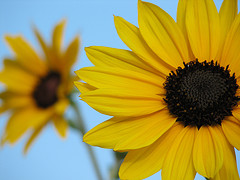Bringing Attention to Intention


The greater our awareness of intentions, the greater our freedom to choose. People who do not see their choices do not believe they have choices. They tend to respond automatically, blindly influenced by their circumstances and conditioning. Mindfulness, by helping us notice our impulses before we act, gives us the opportunity to decide whether to act and how to act. […]
Every mind-moment involves an intention. This suggests the phenomenal subtlety with which choices operate in our lives. Few of us keep our bodies still, except perhaps in meditation or in sleep. Each of the constant movements in our arms, hands, and legs is preceded by a volitional impulse, usually unnoticed. Intentions are present even in such seemingly minute and usually unnoticed decisions as where to direct our attention or which thoughts to pursue. Just as drops of water will eventually fill a bathtub, so the accumulation of these choices shape the way we are.
Our intentions – noticed or unnoticed, gross or subtle – contribute either to our suffering or to our happiness. Intentions are sometimes called seeds. The garden you grow depends on the seeds you plant and water. Long after a deed is done, the trace or momentum of the intention behind it remains as a seed, conditioning our future happiness or unhappiness. If we water intentions with greed or hate, their inherent suffering will sprout, both while we act on them and in the future in the form of reinforced habits, tensions and painful memories. If we nourish intentions of love or generosity, the inherent happiness and openness of those states will become a more frequent part of our life. […]
Bringing attention to intention does not, as some fear, lead to a life of endless effort at monitoring ourselves. Self-consciousness and self-preoccupation may be exhausting, but not awareness. As we become clearer and wiser about our intentions, we find greater ease. We begin to act with less and less self-concern.
--Gil Fronsdal
Add Your Reflection
3 Past Reflections


